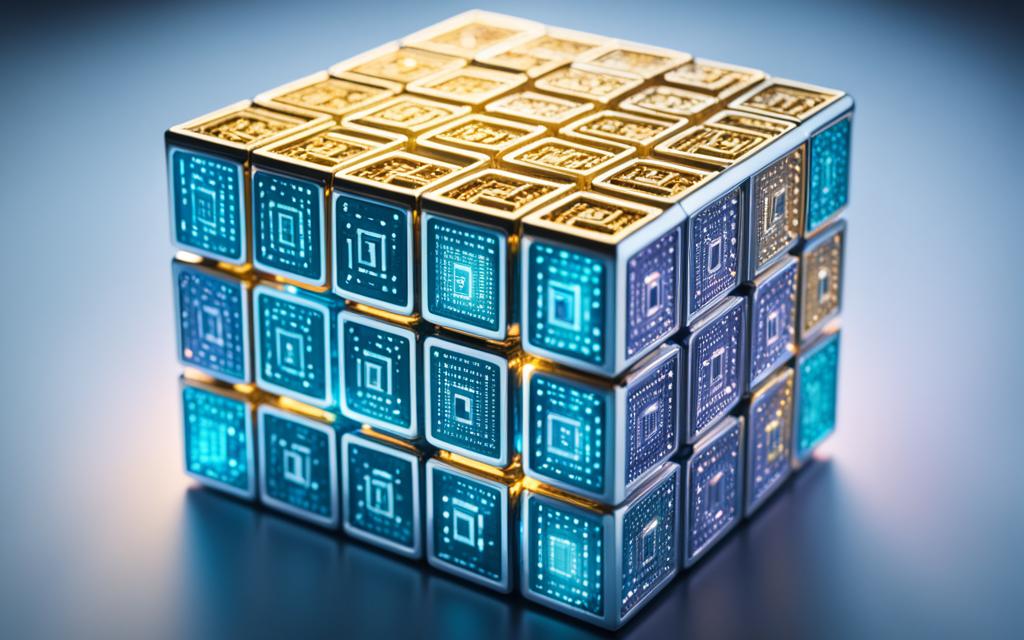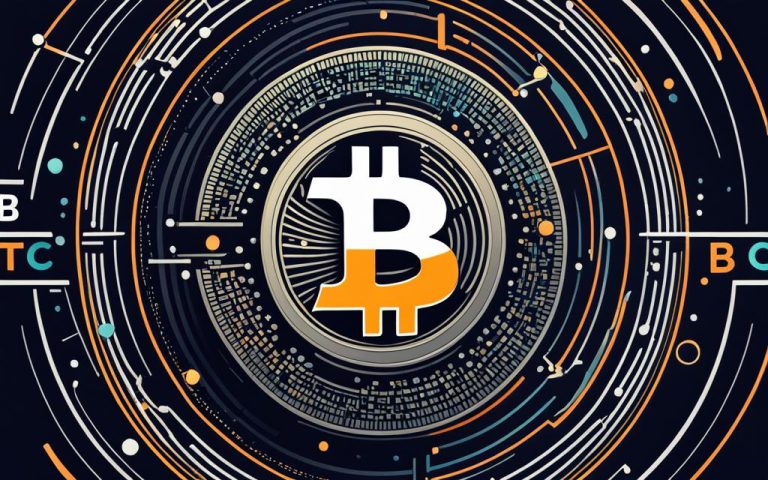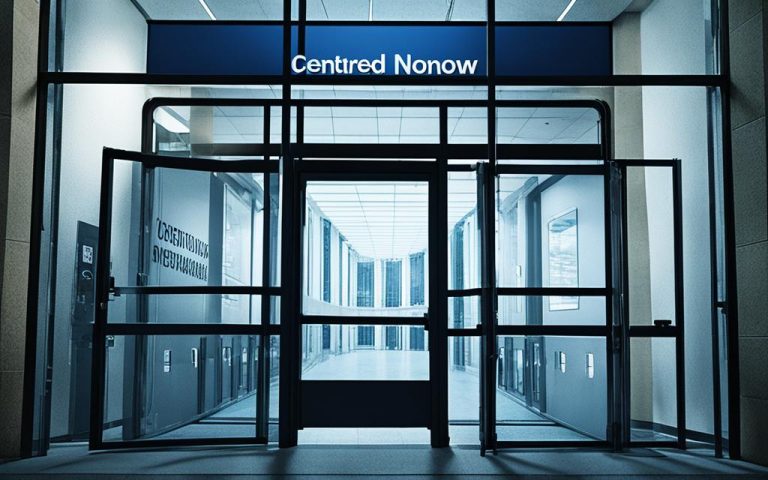In the blockchain world, nodes are key. They keep the network decentralized and check the public ledger’s consensus. What are they, and why do they matter so much?
A blockchain node is a device-stakeholder duo involved in the network’s software. These nodes help build the network’s base, acting as its pillars.
Nodes come in various types, like routers and servers. Any gadget with an IP address can be a node. These connect to the network and talk to other nodes through special protocols.
Nodes keep the blockchain’s ledger agreed upon. They do this by maintaining, checking, and allowing access within the network.
There are several kinds of nodes, each with its role. For example, full nodes keep the blockchain’s history. They make sure data is synced, saved, copied, and shared, and check new blocks.
Pruned full nodes keep things secure without needing much storage. They only keep recent entries, managing the blockchain’s size while staying safe.
Archival full nodes are different. They save all transactions back to the start. These nodes are great for researching and auditing within the blockchain world.
Different blockchains have other nodes too. Authority nodes, for example, are chosen to oversee some blockchains. Mining nodes earn crypto by verifying transactions and forming new blocks.
Master nodes check transactions and keep records but don’t create blocks. Staking nodes secure the network with deposited funds. Light nodes handle quick transactions with help from full nodes.
Despite the variety, full nodes are crucial. They store the full ledger, ensuring the blockchain’s truth and safety.
In summary, blockchain nodes form the network’s core. They agree on transactions, check them, and help keep the blockchain safe and working. Understanding these nodes is key for blockchain enthusiasts.
To learn more about blockchain nodes, you can visit this link, link, and link.
How Blockchain Nodes Work
Blockchain nodes are crucial to the decentralized network. They handle tasks like blockchain upkeep, checking transactions, and storing blockchain data. They ensure the blockchain runs smoothly, securely, and effectively.
Nodes keep the blockchain updated and consistent. They store the full blockchain, keeping a record of every transaction. This is key for a transparent and fixed ledger available to all network users.
One key job of nodes is to validate transactions. They use consensus mechanisms to check transaction authenticity. The main mechanisms are proof-of-work (PoW) and proof-of-stake (PoS). In PoW, nodes solve puzzles to confirm transactions. In PoS, the validation depends on the nodes’ stakes.
There are various node types in blockchain networks, each with a unique role. Full nodes are vital for network stability. They check all blockchain operations and store every transaction. Full nodes need a lot of storage space for the entire blockchain.
Light nodes or SPV nodes fit mobile or storage-limited devices. They store just part of the blockchain for quick syncing and less resource use. Light nodes work well as crypto wallets because they’re efficient and easy to use.
Masternodes are special nodes with extra roles and rewards in some blockchain networks. Owners get rewards in the blockchain’s currency for their work. Masternodes help manage and govern the blockchain protocol.
Setting up a blockchain node requires good planning. You’ll need the right hardware, software, space, and energy. The specific requirements change based on the node type, so understanding the network is important.
To keep a node running well, it should operate at least six hours daily without stopping. This keeps the node reliable and stable, ensuring it does its job well.
Blockchain networks have features like Sybil and censorship resistance, and Byzantine Fault Resistance. These traits make the networks secure and stable. Nodes are key in keeping these features, helping the network stay decentralized.
Learning about blockchain nodes helps understand blockchain’s foundation. Nodes are essential for data distribution, decentralizing storage, and checking transactions among users.
To learn more about blockchain nodes, you can check out the following articles:
- What Is a Blockchain Node?
- What Are the Types of Nodes in Blockchain
- Blockchain Nodes 101: Discover the Foundation of Decentralized Crypto Networks
Types of Blockchain Nodes
| Node Type | Storage Capacity | Function |
|---|---|---|
| Full Nodes | Large | Maintain entire blockchain history, validate all transactions |
| Light Nodes (SPV Nodes) | Small | Store subset of blockchain data, faster synchronization |
| Masternodes | Varies | Validate transactions, additional protocol management |
| Miner Nodes | Varies | Validate transactions, generate new blocks |
| Pruned Full Nodes | Varies | Store recent blockchain transactions, efficient storage management |
| Archival Full Nodes | Large | Preserve entire blockchain ledger, extensive transaction data storage |
| Super Nodes | Varies | Specialized tasks based on industry or market segment |
| Lightning Nodes | Varies | Facilitate off-chain transactions, enhance transaction speed and cost-effectiveness |
| Staking Nodes | Varies | Use proof-of-stake consensus, allocate authentication powers based on user contributions |
| Authority Nodes | Varies | Endorsed by blockchain organizations or communities, contribute to network integrity and security |
Why Are Blockchain Nodes Needed
Blockchain nodes are key in the world of decentralized networks. Unlike traditional systems with one control center, blockchain spreads control across many participants.
Nodes work together keeping the network in check. They validate transactions and make sure they’re accurate and reliable. This is how they help reach agreement in the network.
All tokens and smart contracts live inside a node. This makes nodes the ultimate source of truth in a blockchain. They verify every transaction’s history, offering both transparency and security.
The more nodes a network has, the safer and more decentralized it is. Lots of nodes mean it’s hard for attackers to harm the network. So, a big number of nodes means more security and trust.
Nodes are vital for blockchain to work. They ensure it stays decentralized and secure. With nodes, blockchains can change how we do digital transactions, impacting many industries.
https://www.youtube.com/watch?v=1S-m5zsbt6E
| Benefits of Blockchain Nodes | Key Functions |
|---|---|
| Enhanced Security | Authenticating transactions and executing decision-making protocols |
| Decentralization | Maintaining network control without a central authority |
| Transparency and Immutability | Being the blockchain’s truth source, validating transaction history |
| Resilience to Attacks | Making it tough for intruders, securing network integrity |
Conclusion
Blockchain nodes are super important in decentralized networks. They help reach agreement and check transactions. By doing these tasks, they keep the network safe and running smoothly.
Their decentralized setup stops any one group from having all the power. How many nodes there are and their types affect the network’s security. So, knowing what blockchain nodes do is key to understanding blockchain itself.
They make sure data is correct and approve transactions. Their job in reaching agreement is crucial for blockchain to work well. As more people get into blockchain, it’s vital to understand the role of nodes.
FAQ
What is a blockchain node?
A blockchain node is a device and person that help run the network’s software. This partnership is key in the decentralized network.
What is the role of a blockchain platf node?
Nodes support the decentralized network by being its backbone. They make sure the blockchain’s ledger is correct.
What devices can serve as blockchain nodes?
Many devices like routers, modems, and servers can be nodes. Even printers can take part in a blockchain network.
How do nodes interact with each other?
Nodes use special protocols to connect and talk to each other in the network.
What tasks do nodes perform within a blockchain network?
Nodes keep the blockchain running smoothly. They validate and store transaction data. They also help the network grow by adding new blocks.
What are the different types of blockchain nodes?
There are full nodes, pruned nodes, and light nodes. Each type has a unique role based on its storage and functionality.
Q: Why are blockchain nodes essential?
Nodes are key for keeping a blockchain network safe and decentralized. They remove the need for a central power and maintain the network’s integrity.
Q: What is the role of nodes in transaction validation?
Nodes check and approve transactions using rules. They keep the network honest and up-to-date.
Q: How do nodes store and make blockchain data accessible?
Nodes make sure blockchain data is visible and available to all network members.
Q: Can you provide an example of a specific role for blockchain nodes?
In Polkadot, collator nodes play a key part. They link parachains with the relay chain, important for the network’s function and rules.
Q: How do blockchain nodes contribute to the security of the network?
Nodes are vital in protecting the blockchain’s structure and the network’s honesty.
Q: What is the significance of nodes in a decentralized network?
Nodes are necessary in a decentralized network. They help control the network, take the place of a central authority, and manage utility and governance.
Q: Where do tokens and smart contracts exist within a blockchain?
All tokens and smart contracts are stored within nodes. This makes nodes the core truth source in a blockchain.
Q: How does the number of nodes affect the decentralization and security of a blockchain network?
More nodes mean a stronger, more secure network. A high count of nodes makes attacking the network harder.
Q: What role do blockchain nodes play in the functioning of blockchains?
Nodes are crucial for blockchains to work. They allow the blockchain to stay operational, maintaining consensus and verifying transactions.
Q: How do blockchain nodes empower decentralized networks?
Nodes empower decentralized networks by ensuring transactions are agreed upon. They bolster the network’s strength and independence.
Q: How do blockchain nodes contribute to the integrity and security of the network?
Nodes are involved in many tasks. They maintain, check, and make blockchain info available, keeping the network secure and trustworthy.



















